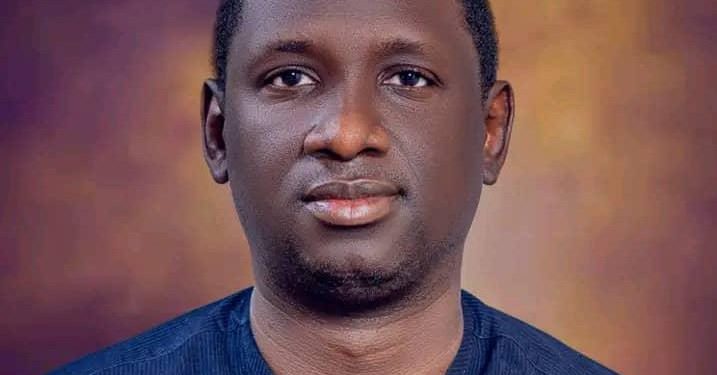By Isaac Unisa Kamara
In the stormy tides of West African politics, few figures rise with the calm authority and strategic foresight of Dr. Ibrahim Bangura. An Associate Professor of Peace and Conflict Studies at Fourah Bay College, University of Sierra Leone, Dr. Bangura is not just an academic or technocrat—he is a tested architect of peace in a region often teetering between promise and peril. With more than 20 years of hands-on experience in transitional justice, Disarmament, Demobilization and Reintegration (DDR), human rights, and security sector reform, he now emerges as a flagbearer aspirant for the All People’s Congress (APC) ahead of Sierra Leone’s 2028 elections.
Could he be Sierra Leone’s next transformative president? More crucially, could he be the stabilizing force West Africa urgently needs?
Igniting Reconciliation
Dr. Bangura’s campaign is expected to revolve around national healing. In a post-2023 coup attempt landscape, marked by deep ethnic and political scars, he would champion transitional justice not just as a policy but as a pathway to national rebirth. Building on his experience with Transition International and Conciliation Resources, Bangura would launch a nationwide reconciliation initiative that revives and expands the Truth and Reconciliation Commission’s legacy. His vision is one where victims are heard, reparations are real, and justice is restorative—not retributive.
Such an approach would extend beyond Sierra Leone’s borders, reinforcing stability in the Mano River Union. Reduced refugee outflows, arms smuggling, and militia infiltration into Guinea and Liberia would lessen the load on fragile governments and, by extension, curtail the spread of Sahel-based extremism.
Fortifying the Frontlines
By 2025, jihadist movements like Boko Haram and JNIM had gained footholds in Mali, Benin, Togo, and northern Nigeria. In this volatile landscape, Dr. Bangura’s expertise in DDR could serve as a regional game-changer. His leadership could help ECOWAS move from reactive posturing to proactive security operations—coordinating border patrols, intelligence-sharing, and cross-border counterterrorism efforts.
He envisions a youth-focused counter-radicalization strategy that integrates employment, education, and civic engagement to pull vulnerable populations away from extremist recruiters. By addressing unemployment—a key driver of radicalization—he proposes a human-centered security model that balances hard and soft power.
Democracy’s Lifeline
With electoral tensions rising across the region, Bangura proposes a reform agenda grounded in inclusive governance. By unifying the APC through internal democracy and promoting proportional representation, anti-corruption measures, and youth empowerment, he aims to fortify Sierra Leone’s democracy as a model for its neighbours.
A peaceful, democratic Sierra Leone could act as a bulwark against the domino effect of authoritarianism and post-election violence threatening to spill over into Côte d’Ivoire, Guinea, and Burkina Faso
Economic Anchor
With over 28.7 million people facing crisis levels of food insecurity in the Sahel and West Africa, Bangura’s economic policy is bold yet pragmatic. He seeks to leverage the Africa Continental Free Trade Area (AfCFTA) to diversify Sierra Leone’s economy, prioritizing agriculture, sustainable mining, and infrastructure to spur job creation. Drawing from Sierra Leone’s post-Ebola resilience, he would bolster regional health security in the face of new pandemics and climate-related threats.
A Vision Rooted in Reality, A Future Anchored in Hope
Dr. Ibrahim Bangura represents more than a political figure—he symbolizes a strategic shift from fire-fighting crises to building lasting peace, regional cooperation, and sustainable development. His blend of scholarly depth, field-tested conflict resolution, and vision for economic inclusivity places him at a rare intersection of credibility and capability.
In a region yearning for leadership that listens, heals, and unites, Bangura stands not only as Sierra Leone’s peace architect—but potentially West Africa’s next turning point.











